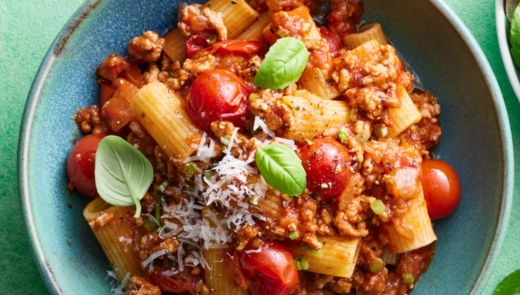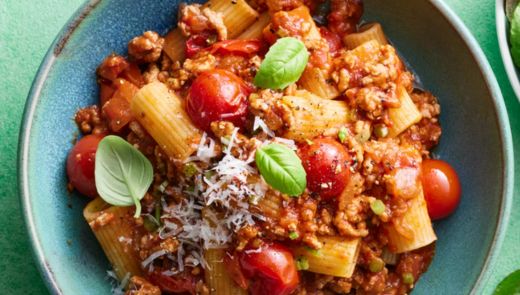
Recipe Getting Started
NUTRITION BASICS
Food is fuel. It gives us energy to think, breathe, walk, and talk. Specifically, the three major nutrients found within food, referred to as macronutrients, are responsible for providing us with fuel, known as calories. These macronutrients, known as carbohydrates, proteins, and fats, are the most critical nutrients of human nutrition. Each of them plays a critical role, therefore is important to have a basic understanding of these nutrients, what they do, and how they affect our bodies and health.
What is a calorie?
A calorie is simply a way of measuring the amount of energy in food. Many people try to avoid or limit calories due to the potential for weight gain. In order to maintain your weight, you need to consume the same number of calories as you burn. If you are gaining or losing weight, that means you are consuming more or fewer calories than you actually need.
Calories come from only three main sources, known as the macronutrients. After eating, these three nutrients are either immediately used by the body for various functions (to build muscle, to provide immediate energy, to build new cells) or if consumed in excess they are stored as fat. The key to a healthy weight is not to eliminate or avoid any specific macronutrient, but instead to find the right balance to between our calorie intake and expenditure.
What is protein?
Protein is an essential nutrient found in every cell of our bodies. Protein makes up the structure of the cells, organs, and muscles. It can also be used to make hormones, co-enzymes, blood, and even DNA. Protein-containing structures are constantly being broken down and replaced, therefore the body needs some protein daily to replace what has been used up.
Protein can also be used for energy. Most adults get more than enough protein to meet their daily needs as long as they are eating a varied diet. Protein has gotten a lot of hype as a “weight loss” food over the last few years, but adding more protein to your diet will not cause any miraculous weight loss. It can cause you to feel more satisfied at a meal, but it still contains calories and too many calories from any source can cause you to gain weight.
What is a carbohydrate?
Carbohydrates are a large molecule found in food that your body breaks down into sugar (glucose). The body uses the sugar from these molecules to give you energy for daily activities and to maintain proper organ function, especially brain function. The glucose from carbohydrates is either burned right away or can be saved in the muscles and liver to be used later.
The minimum amount of carbohydrates needed for proper brain function is about 130 grams per day. If you are physically inactive, you may want to eat fewer carbohydrates, as any excess can get stored as fat. You should always choose “complex” carbohydrates like fruits, vegetables, milk or yogurt, beans, and whole grains. These complex carbs contain fiber and will also give you a hefty dose of vitamins, minerals, and phytonutrients. Limit foods containing added sugar like cakes, pies, candy, or sugary drinks.
What is Fat?
Fat has been unfairly blamed as the nutrient that causes disease and makes us gain weight. However, in order to maintain a healthy lifestyle, fat is actually a necessary part of the diet and may be beneficial. Part of the reason that fat has such a negative reputation is that fat is higher in calories, over double what is provided by protein and carbohydrates. But, it is not fat that is the problem for chronic disease, it is the over consumption of the wrong kinds of fat that is problematic to our health.
Limit your intake of saturated and trans fats such as those found in high fat meats and processed baked goods as these have been linked to disease risk and may increase cholesterol. Healthy fats actually can help lower the risk of the disease and make you feel more satisfied when eating. Healthy fats are monounsaturated and omega-3 fats, found in foods such as nuts, olive oil, avocados, fish, and flaxseeds. Including these fats in your diet can help reduce the risk of many chronic diseases such as heart disease and diabetes.
Fats help us feel more satisfied with our meals and are necessary for proper brain and immune function. Don’t be afraid of fat, just choose the right type. But, remember, fat is high in calories so even if there are health benefits, watch your portions, a small amount can go a long way.
By TAPfit Dietician, Julie Masci.




